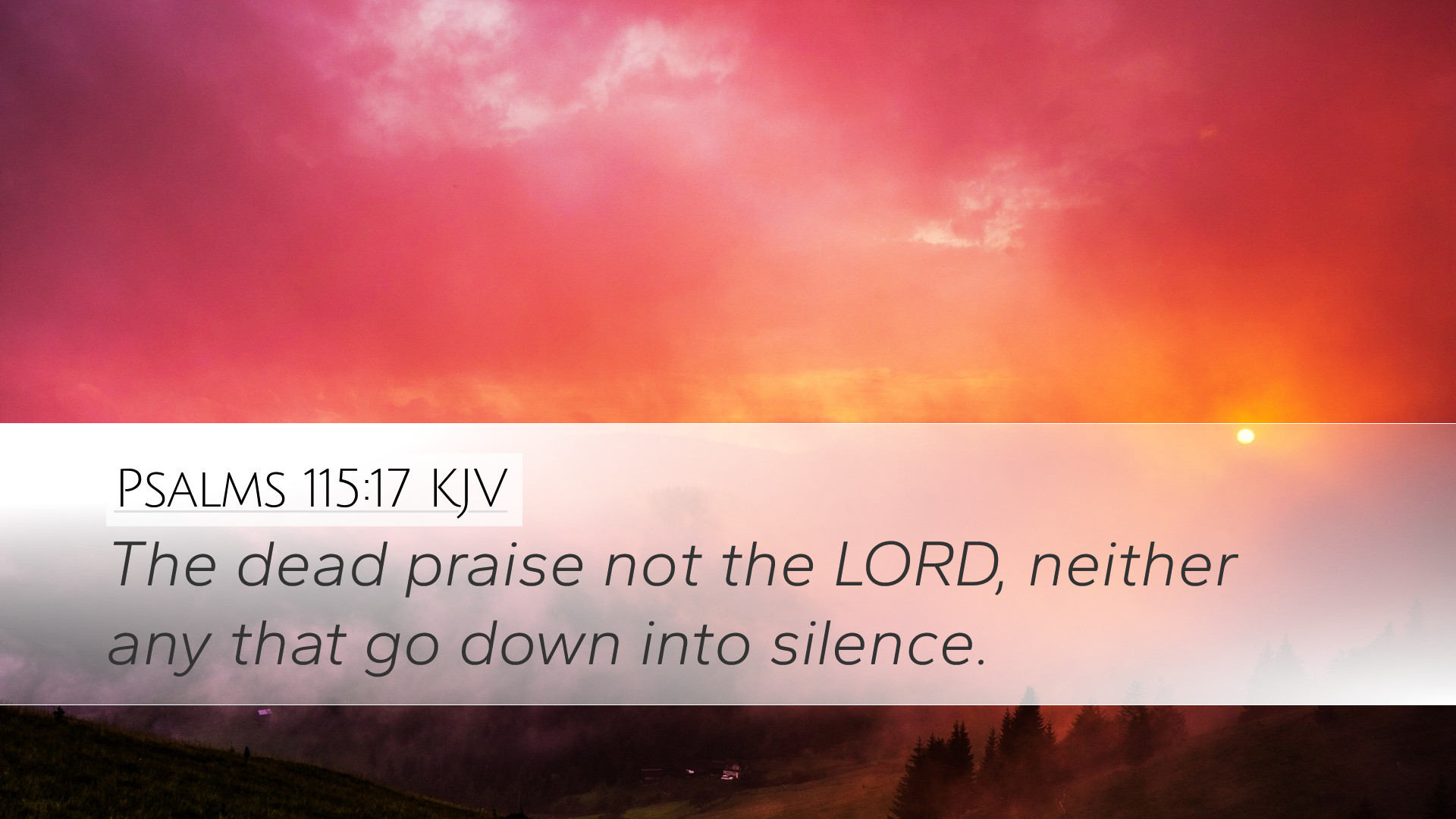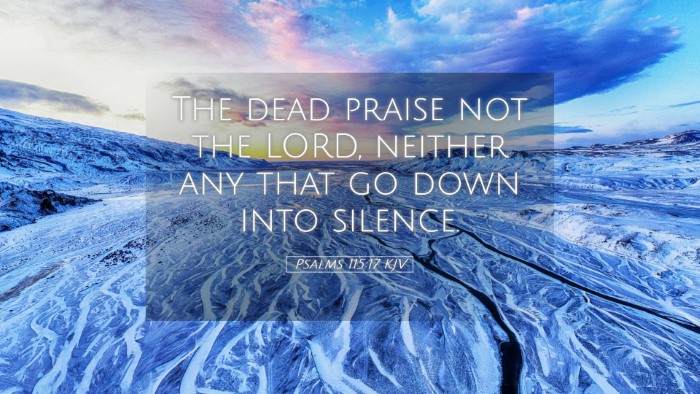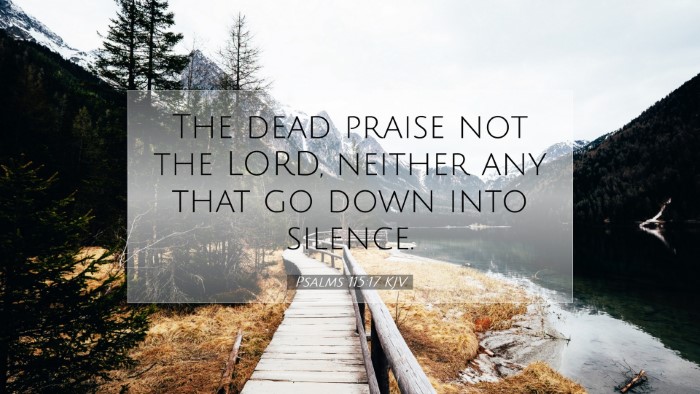Psalms 115:17 Commentary
Psalms 115:17 states, "The dead do not praise the LORD, nor do any who go down into silence." This verse offers profound theological implications regarding life, death, and worship, and it has been the subject of various interpretations throughout biblical commentary.
Divine Worship and Life
This verse serves to underscore a critical aspect of worship: it is an act that requires life. As highlighted by Matthew Henry, the psalmist draws a clear distinction between the living and the dead in their ability to offer praise to God. Henry states that only the living can engage in acts of worship and thanksgiving, emphasizing that the vibrancy of life is essential to the response of praise.
The Nature of God’s Praise
Albert Barnes expounds on the meaning of “praise” in this context. He indicates that the essence of praise is deeply connected to the experiences and expressions of life. The living can articulate their experiences of God’s goodness, mercy, and power. Therefore, the dead, who have passed from the mortal experience, can no longer partake in this vital interaction with God.
Silence in Death
Adam Clarke brings attention to the term "silence" as utilized in this verse. He notes that "going down into silence" refers to the finality of death which results in the cessation of all human activities, including praise. Clarke interprets this silence not merely as the absence of sound but as a spiritual state that separates the dead from the opportunity to worship. This meaningful silence can also reflect the awe of God's holiness, as those who have passed understand, perhaps more fully, the majesty of God.
Contrast with the Living
The contrast presented here between the living and the dead is significant. Henry and Barnes agree that this verse calls the living to action. If the dead cannot praise, then it becomes the responsibility of those who are alive to lift up their voices in worship. The implication of this verse resounds with urgency—there is a call to worship that is both a privilege and an obligation.
Theological Insights
This verse challenges readers to contemplate the importance of life in the context of faith and worship. It encourages a proactive stance toward discipleship and reverence for God. Clarke suggests that these reflections can serve to motivate the believer to engage more deeply with their faith, knowing that the opportunity for praise, worship, and communion with God exists only in this earthly life.
Implications for Pastoral Ministry
For pastors and church leaders, Psalms 115:17 serves as a reminder of the urgency of evangelism and the importance of imparting the essence of worship to congregants. It can be leveraged in sermons to educate people about the value of living a life intended for glorifying God. Barnes encourages a reflection on how worship can reshape our understanding of life's fleeting nature and motivate individuals to appreciate their relationship with God while they have the chance.
Application in Personal Faith
In a personal context, believers are invited to consider their own lives and testimonies. Henry proposes that the living should constantly seek opportunities to praise God throughout their daily lives. This means acknowledging God's involvement in every aspect—from mundane routines to significant life events—and responding with gratitude and worship.
Legacy of Worship
Finally, the verse serves as an invitation to consider the legacy of worship we leave behind. Clarke suggests that while we may not be able to praise after death, our lives can serve as a testimony of our faith, influencing others even when we are no longer present. This notion of being a living testimony can inspire the living to worship more authentically and fervently, knowing that their actions resonate beyond the grave.
Conclusion
In conclusion, Psalms 115:17 is a poignant reminder of the responsibilities and privileges of the living. We are called to respond to God's glory and greatness while we can. As we engage in discussions rooted in this verse, whether for scholarly pursuit, pastoral application, or personal reflection, may we do so with a renewed recognition of our calling to a life of praise.


